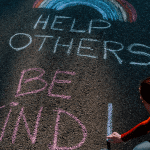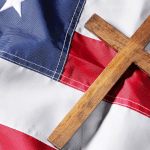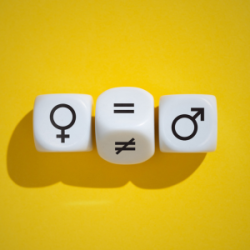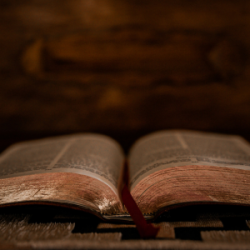
(Part Three in the Two Greatest Commandments series.)
This week is election week here in the U.S. This week, many of us will be taking our civic (love of neighbor) responsibilities very seriously. You can’t say you love your neighbor and vote to put someone in office that will harm those you claim to love. So I’m thinking of my LGBTQ neighbors. I’m thinking all the women neighbors in my life and their rights to bodily autonomy and health care. I’m thinking of neighbors of a different race or culture than my own. I’m thinking of neighbors who have migrated here to survive and gain a better life for themselves. I can’t tell you how to vote. That’s not my place. But I can plead with you to engage your public life, your civic life, and not simply your private religious piety.
Welcome Readers! Please subscribe to Social Jesus Here.
(Read this series from the beginning at Part 1 and Part 2.)
In the end, love of neighbor is what matters. To the degree that we love our neighbor, every other claim of piety is proven true or a lie (1 John 4:20). Love of neighbor is the single greatest practical demonstration of our faith that keeps following Jesus relevant in the 21st century. This year, if you can vote, vote in solidarity with your neighbors who are most vulnerable and disenfranchised.
And then, the day after Election Day, keep choosing to live in solidarity with your neighbors and seek our collective, common good. As our reading states this week, “The second [greatest commandment] is this: ‘Love your neighbor as yourself.’ There is no commandment greater than these.”
The Jesus we see in the gospels was leading a movement of renewal in the face of the disintegration he saw happening to his communities because of Roman oppression. He called his followers not to isolation or individualism but to community, to caring about how we collectively share our resources to ensure everyone is taken care of and has what they need, not simply to survive, but also to thrive.
A few weeks ago I shared a statement in James Robinson’s classic book The Gospel of Jesus: In Search of the Original Good Newswhere he defines Jesus’ teachings in the synoptic gospels. I want to end this week with that statement for us to ponder again in the light of this Tuesday’s election.
“The human dilemma is, in large part, that we are each other’s fate.” (James M. Robinson, The Gospel of Jesus: In Search of the Original Good News, Kindle Edition Loc. 58)
This Tuesday, love your neighbor by getting out there and voting for love and justice. And no matter what the results turn out, that next morning when you wake, keep at it. Keep living love, keep taking action, keep choosing compassion as, together, we continue to follow Jesus in shaping our world into a safe, compassionate, just home for everyone.
Are you receiving all of RHM’s free resources each week?
Begin each day being inspired toward love, compassion, justice and action. Free.
Sign up at:
https://renewedheartministries.com/Contact-forms/?form=EmailSignUp















